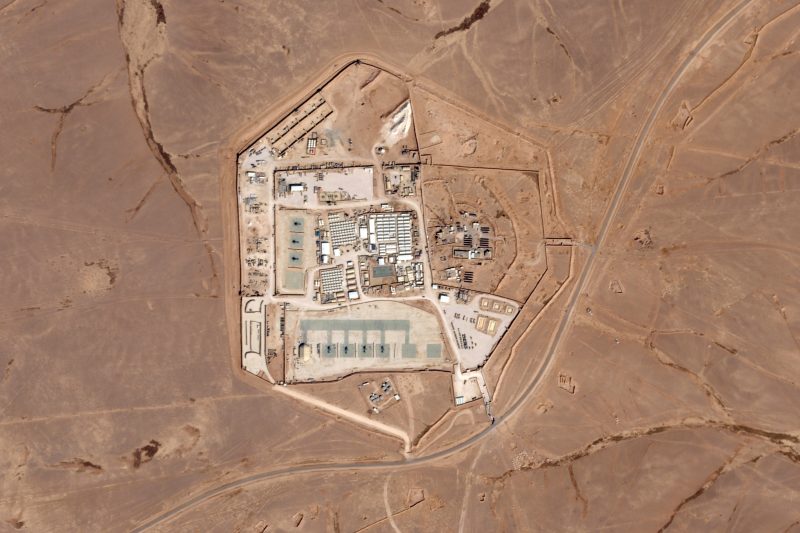U.S. Troops Killed, Wounded in Jordan Attack Blamed on Iranian Proxies
The recent attack on U.S. troops in Jordan has once again highlighted the ongoing threat posed by Iranian proxies in the region. The attack, which resulted in the death and injury of American soldiers, serves as a stark reminder of the dangers faced by U.S. military personnel deployed in the Middle East.
On November 9, 2021, a drone strike targeted a U.S. military base in Jordan, resulting in the death of three American soldiers and the injury of several others. The attack was quickly attributed to Iranian-backed militias, who have been known to operate in the region and pose a significant threat to U.S. interests.
The incident underscores the complex and evolving nature of the conflict in the Middle East. Iran, a major regional power, has long sought to exert its influence in the region through the use of proxy forces. These militias, often armed and trained by Iran’s Revolutionary Guard Corps, have been responsible for numerous attacks on U.S. and coalition forces in Iraq, Syria, and now Jordan.
The attack in Jordan is particularly concerning as it demonstrates the ability of Iranian proxies to strike at U.S. forces outside of traditional conflict zones. Jordan, a key U.S. ally in the region, has been a relatively stable country amidst the turmoil of the Middle East. However, this incident serves as a reminder that no country is immune to the threat posed by Iranian-backed militias.
The U.S. response to the attack has been swift and decisive. In the immediate aftermath of the incident, the U.S. military launched retaliatory airstrikes against the Iranian-backed militias responsible for the attack. These strikes were aimed at degrading the capabilities of the militias and sending a clear message that attacks on U.S. forces will not be tolerated.
The attack in Jordan also highlights the need for continued vigilance and cooperation among U.S. and coalition forces in the region. The fight against Iranian proxies requires a multifaceted approach, including intelligence sharing, targeted operations, and diplomatic efforts to address the root causes of the conflict.
Furthermore, this incident should serve as a wake-up call for the international community to take a stronger stance against Iran’s destabilizing activities in the region. While the U.S. has taken steps to counter Iranian aggression, it is crucial for other nations to join in these efforts and hold Iran accountable for its support of proxy forces.
In conclusion, the attack on U.S. troops in Jordan attributed to Iranian proxies serves as a stark reminder of the ongoing threat posed by these militias in the region. The incident underscores the need for continued vigilance and cooperation among U.S. and coalition forces, as well as a stronger international response to Iran’s destabilizing activities. The loss of American lives is a tragic reminder of the sacrifices made by U.S. military personnel in the pursuit of peace and stability in the Middle East.

